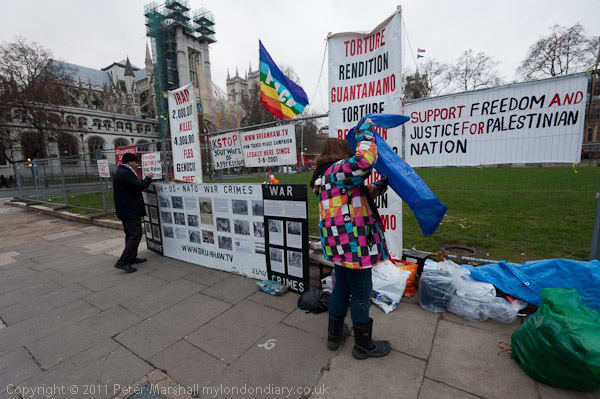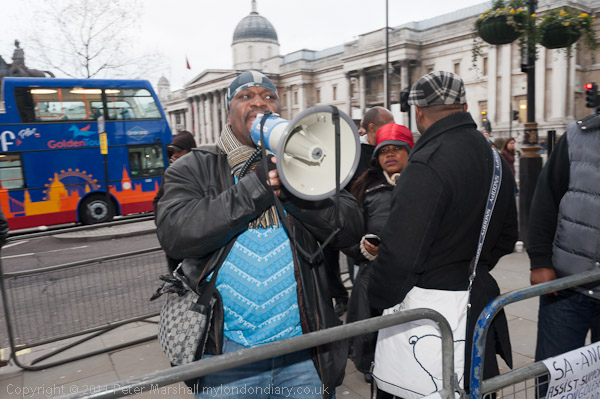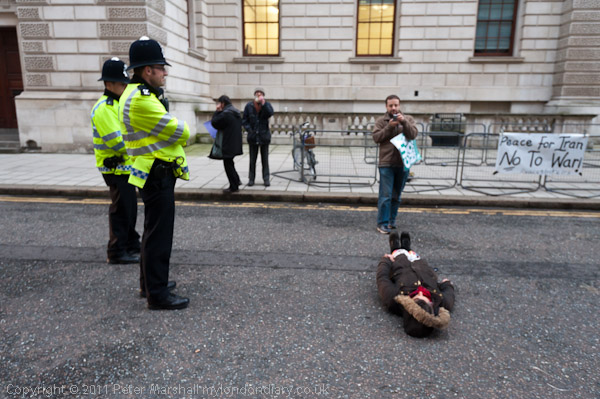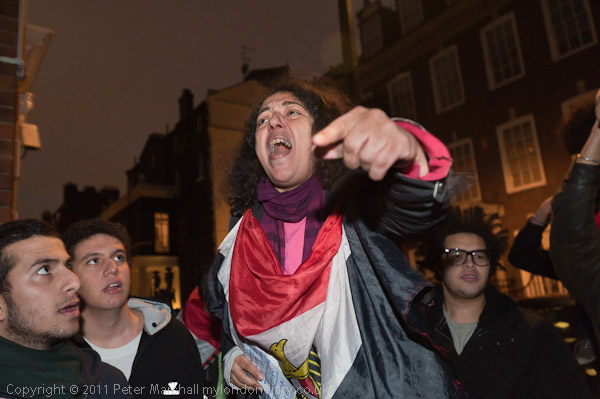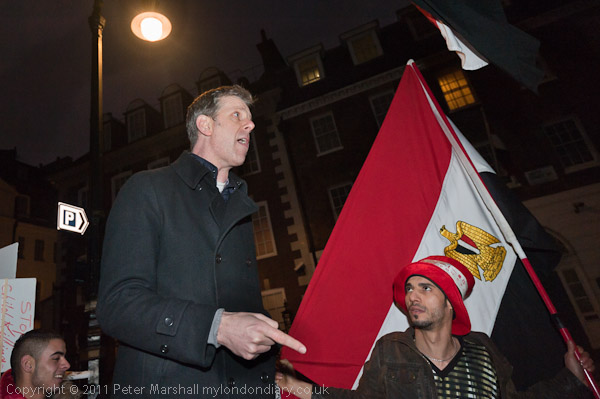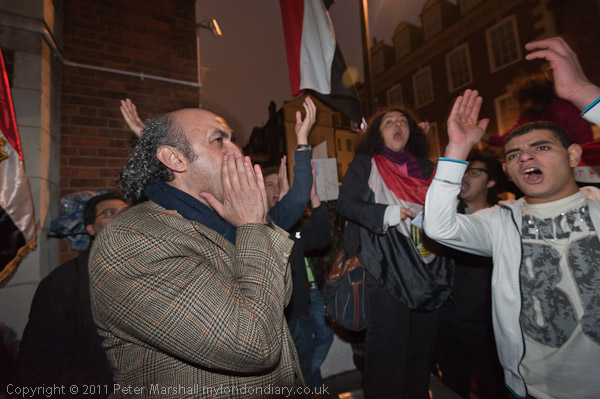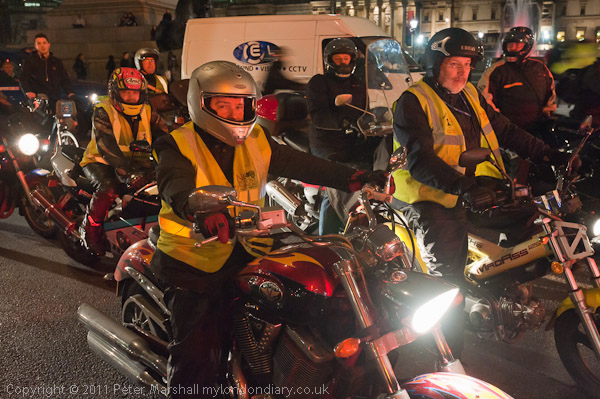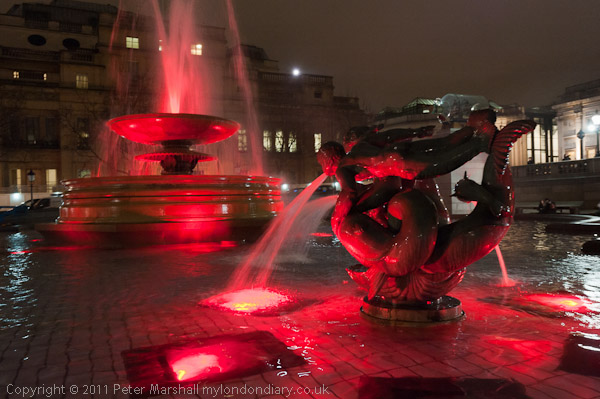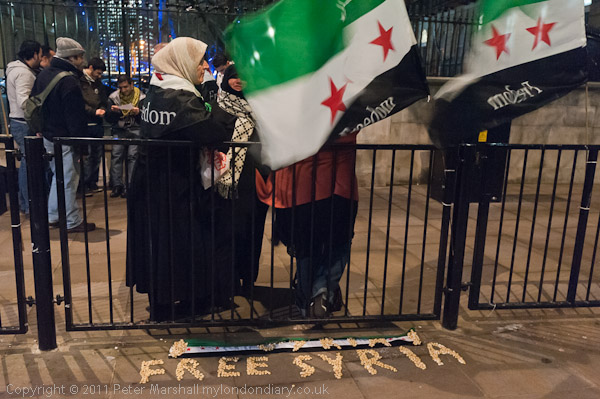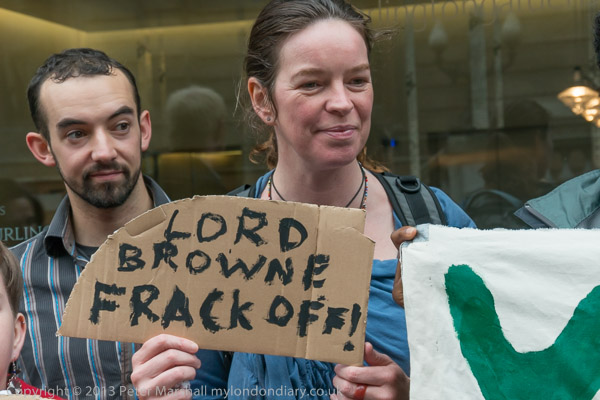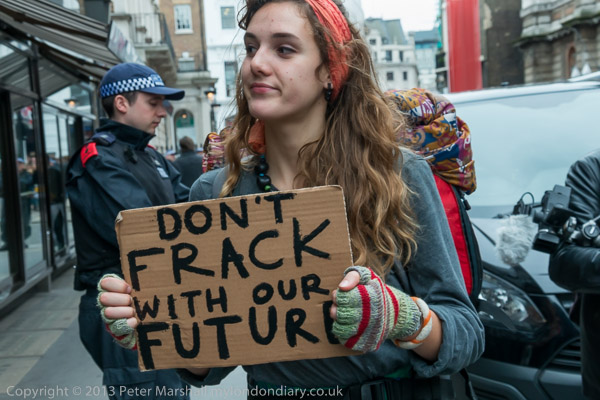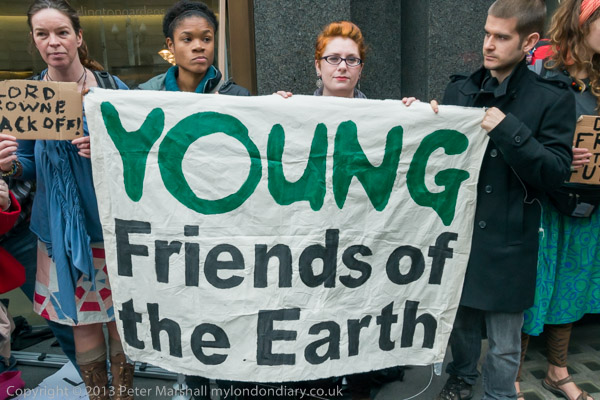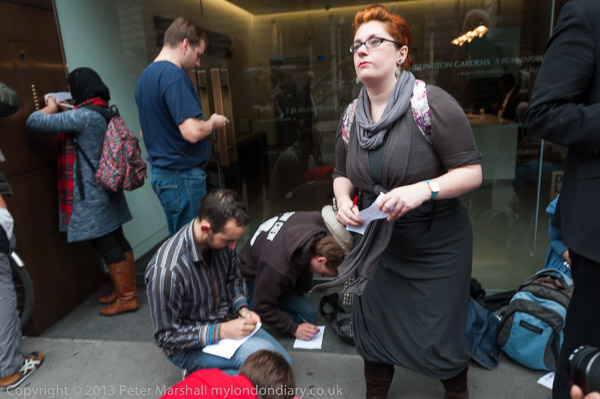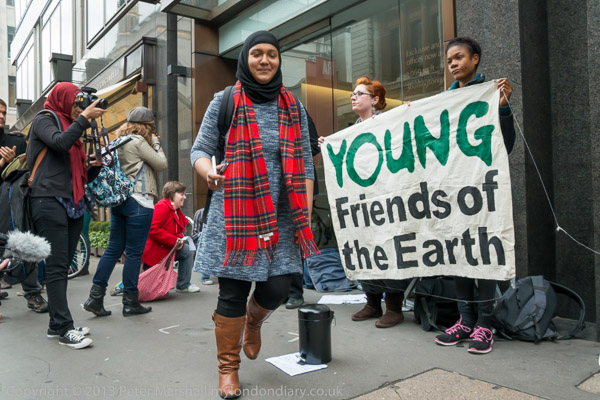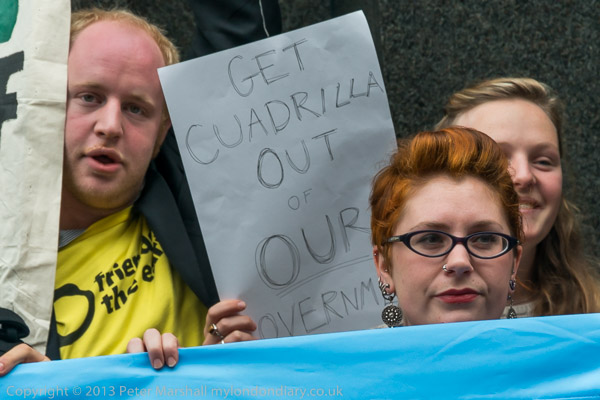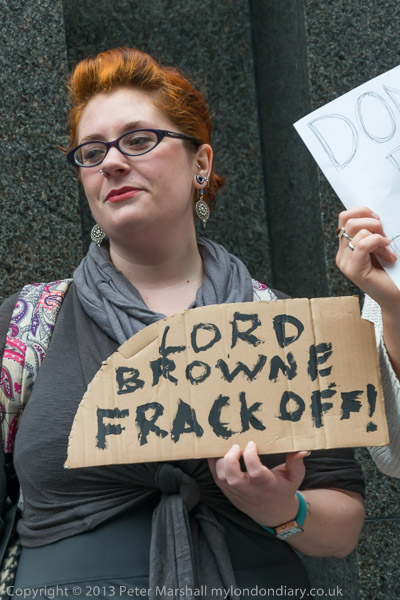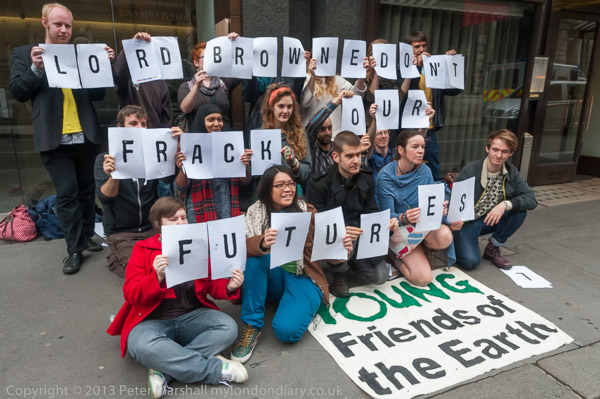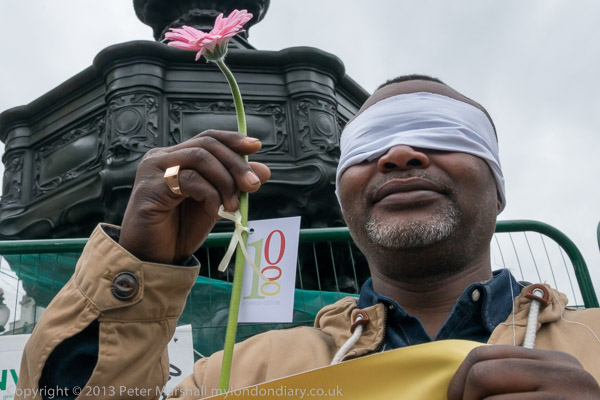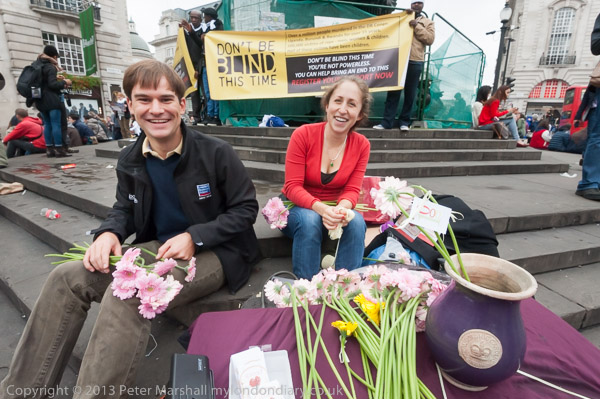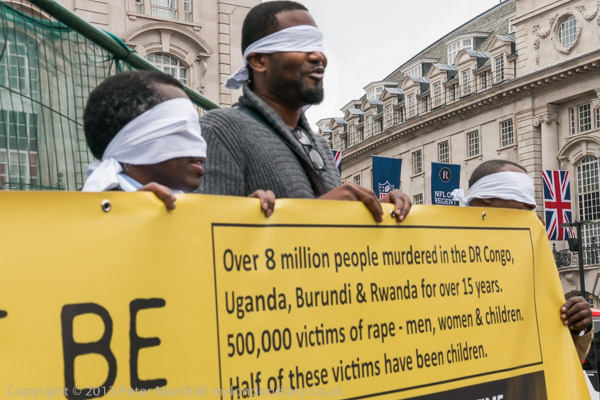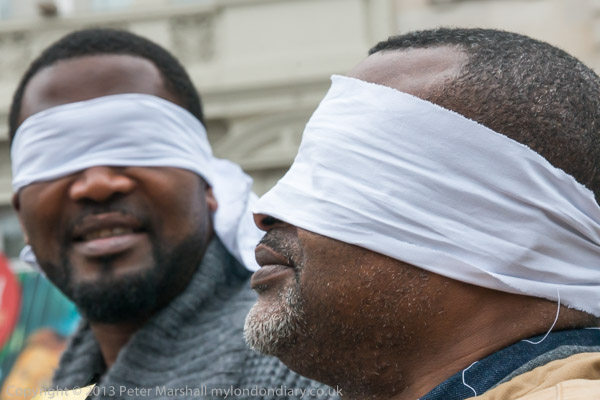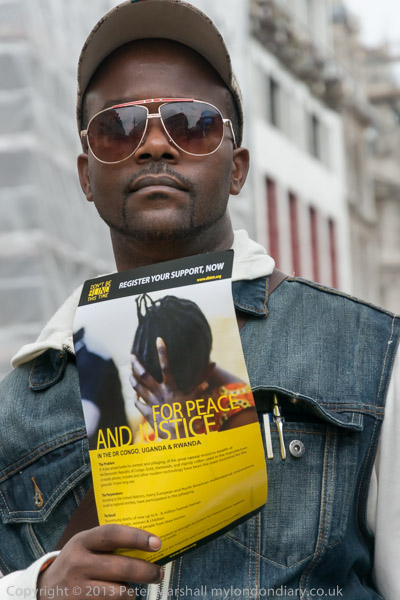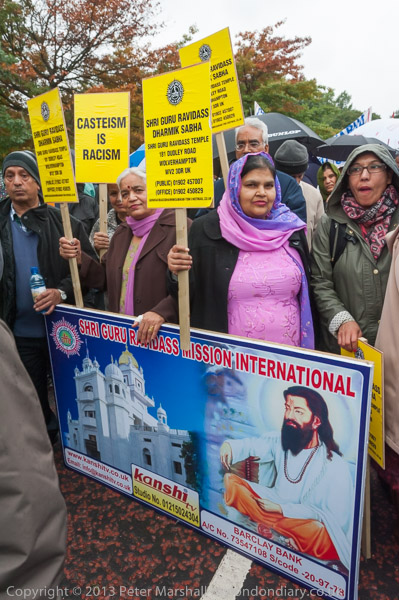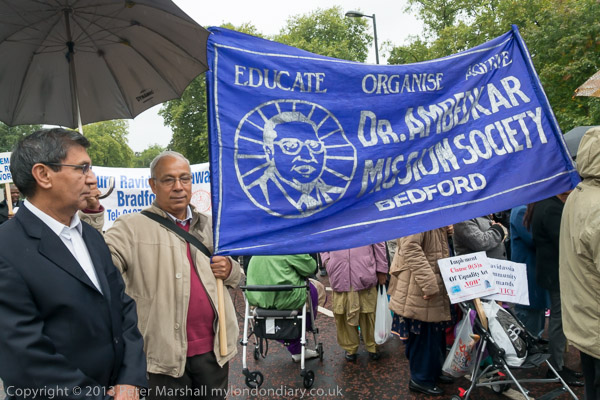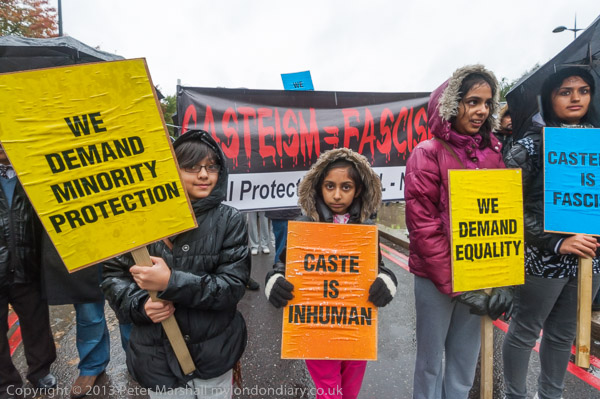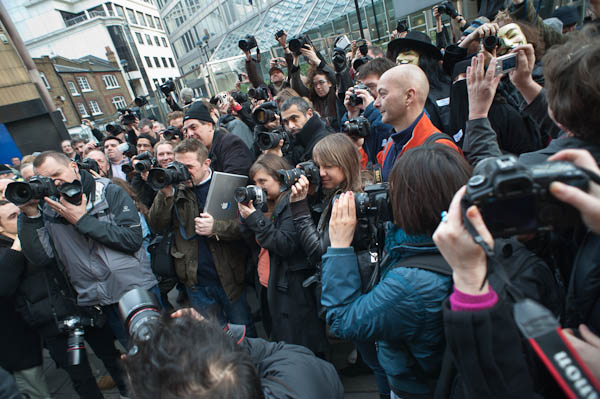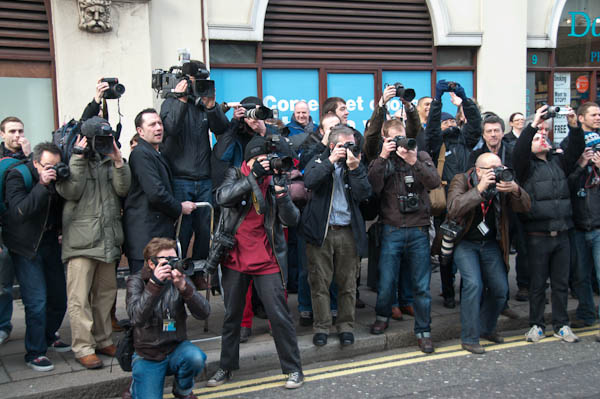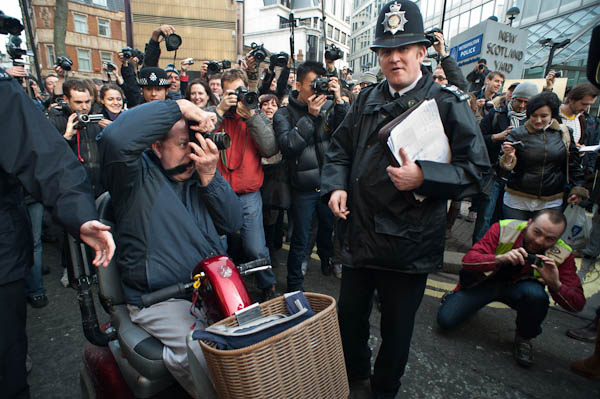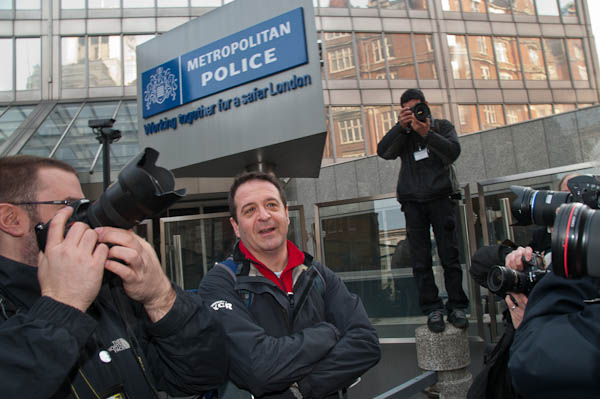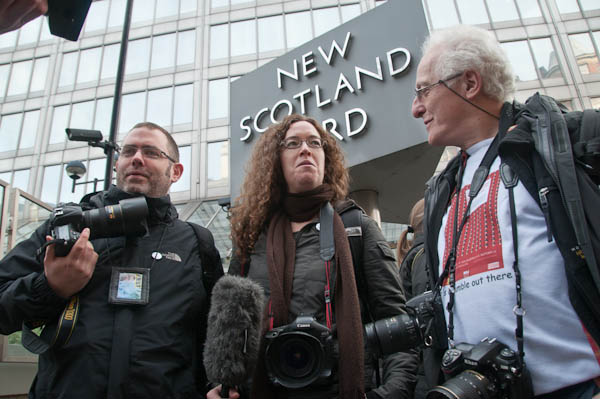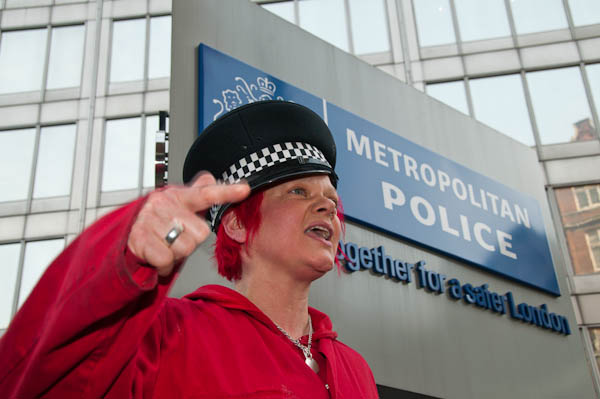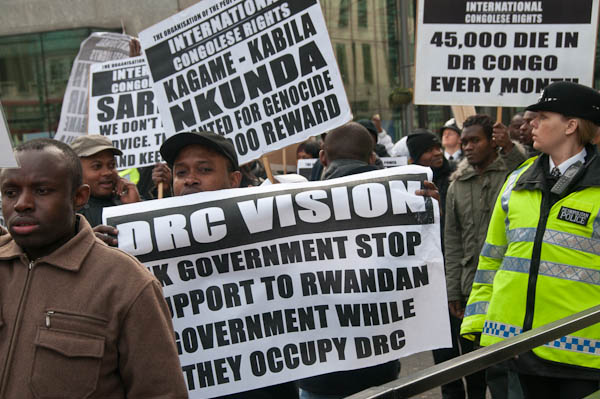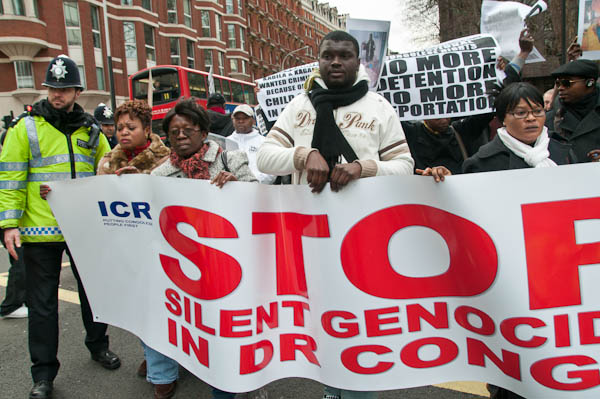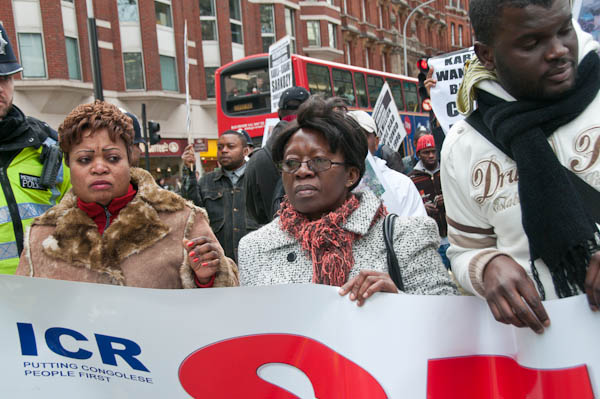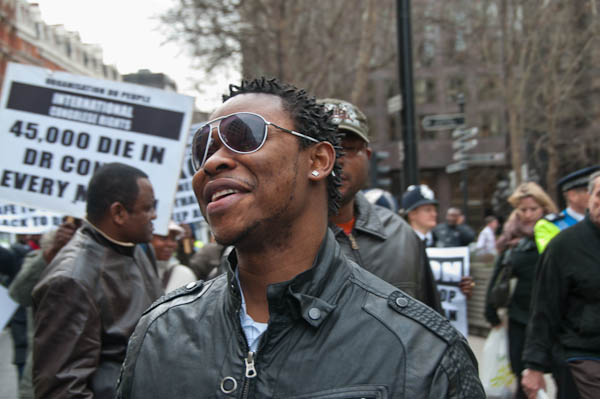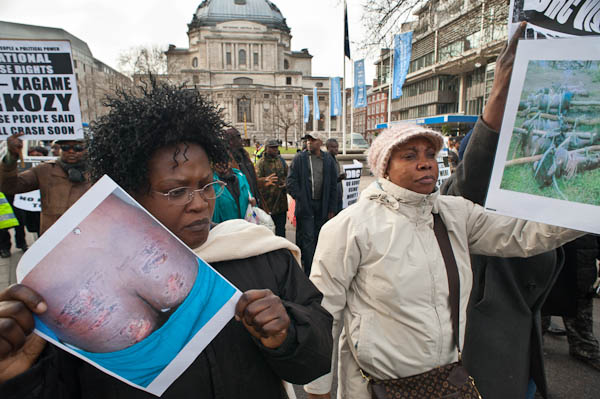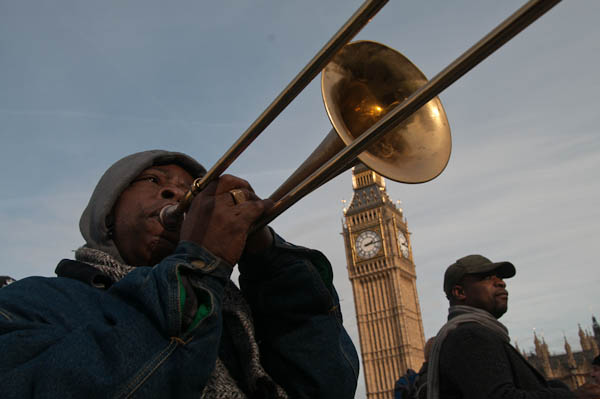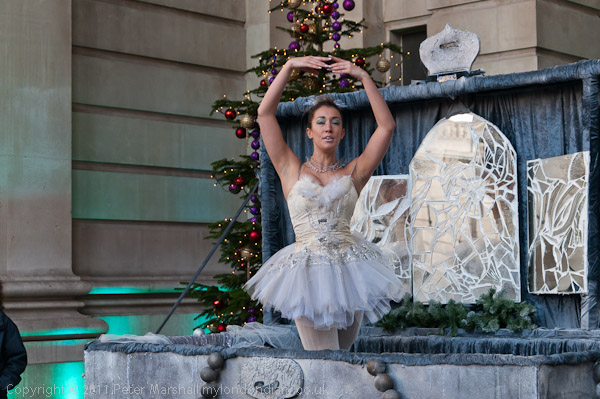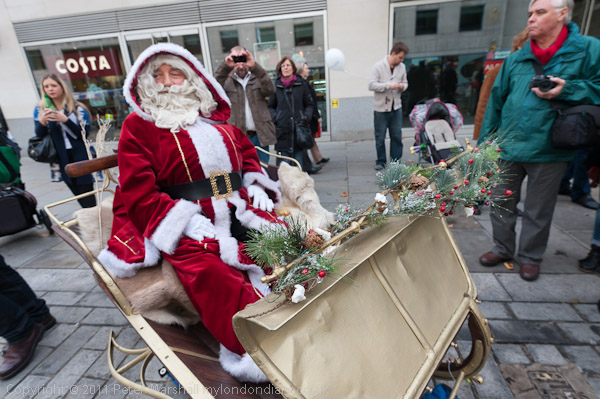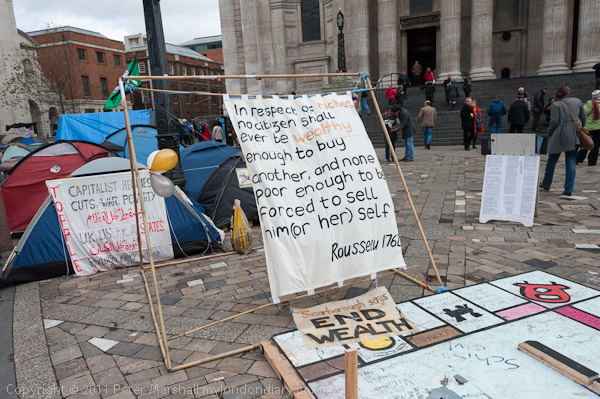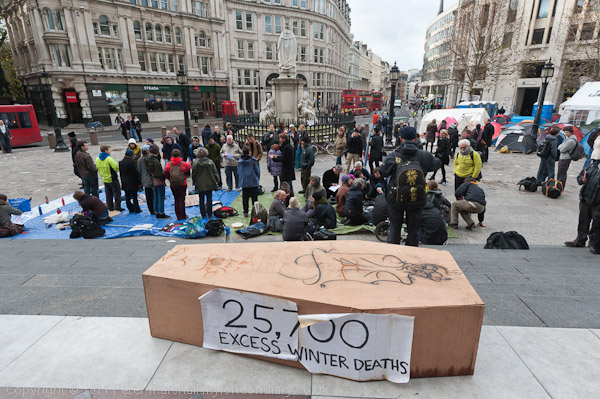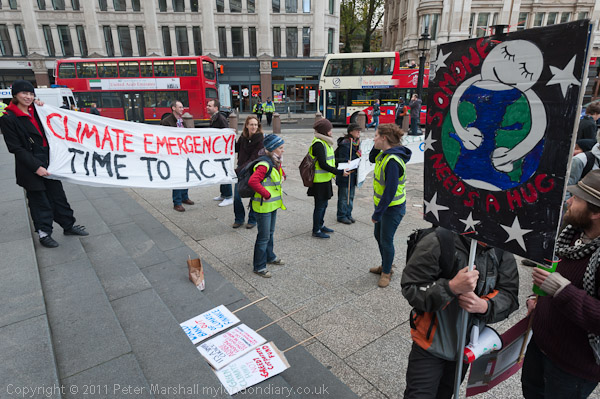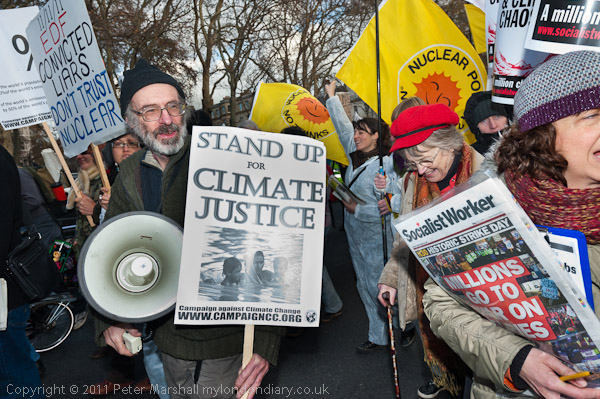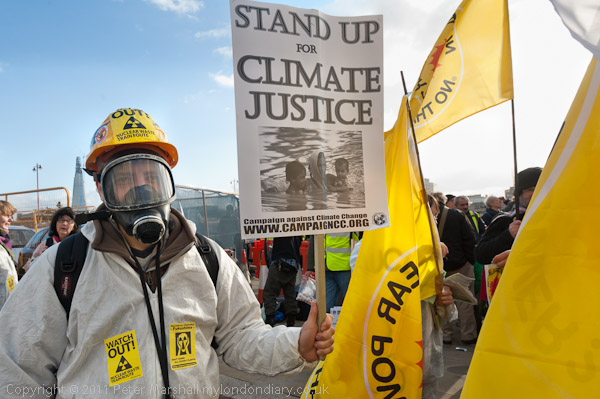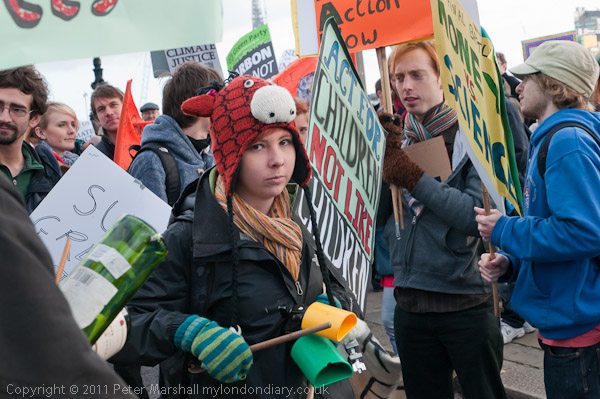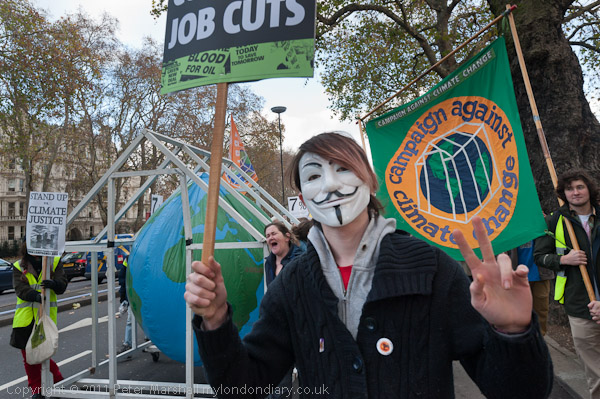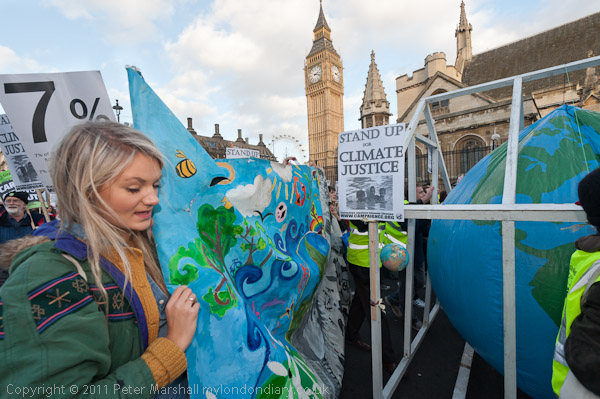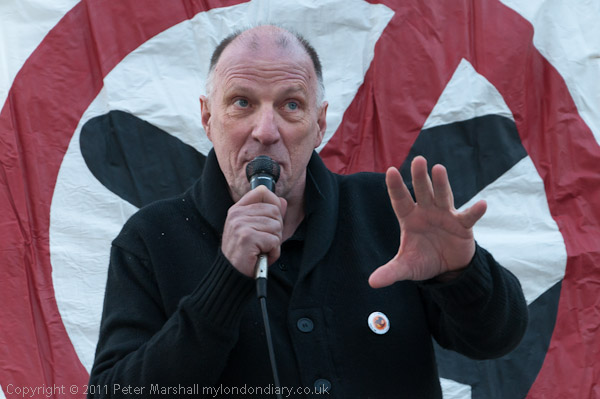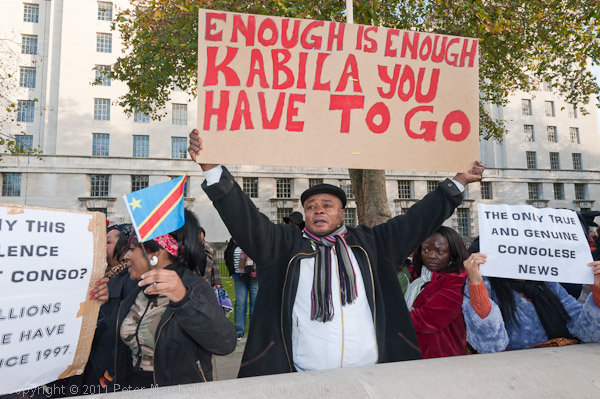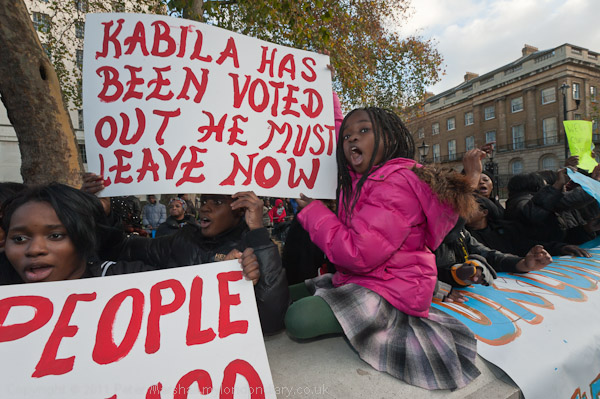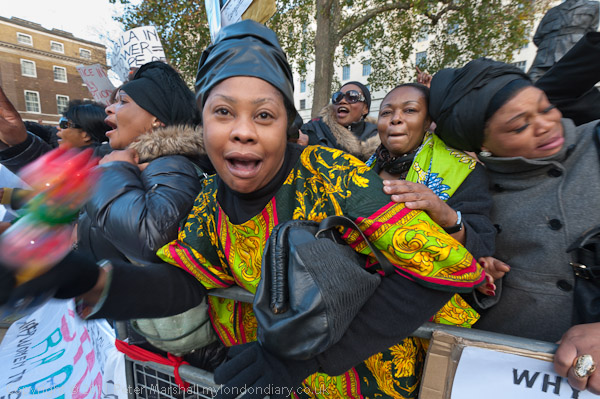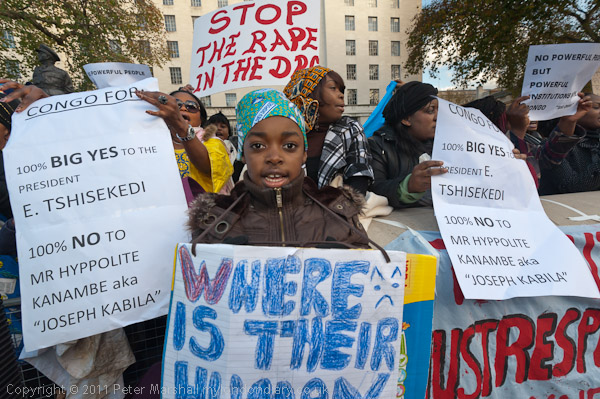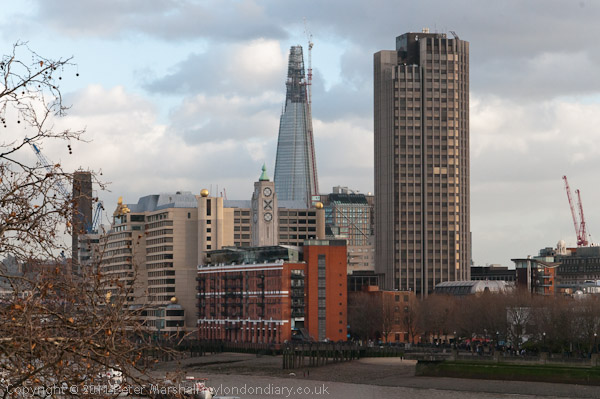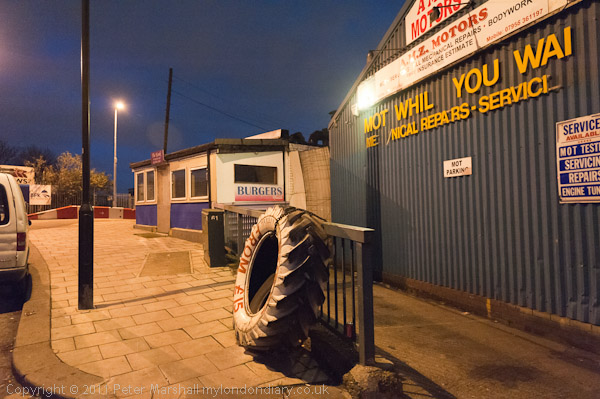John Bowden, Congo & Waterloo Carnival: I don’t think I wrote anything on My London Diary about the three events I covered on Friday 13th July other than some captions on the pictures. The case of John Bowden in particular is one that has considerable relevance now in the UK with increasing prison over-crowding and chaos, and the conflict in the Democratic Republic of Congo is ongoing now for over three decades, but there were dramatic developments earlier this year with now some negotiations between the warring parties.
International Day of Solidarity – John Bowden – Parole Board, Westminster
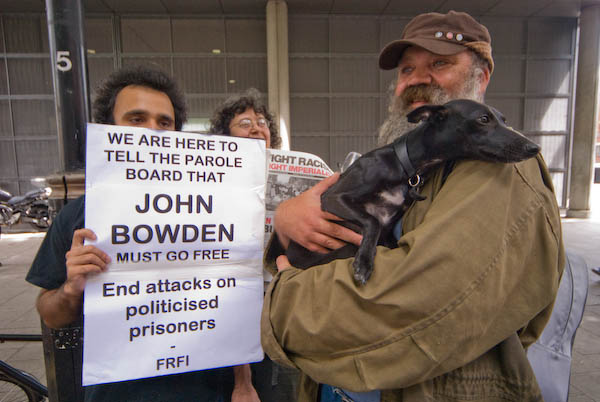
In an interview on Indymedia in 2007 John Bowden stated that he grew up experiencing anti-Irish “racism as well as extreme poverty very early on in life” and committed “serious anti-social acts” including burning “a factory to the ground when I was nine!” which led to him being “systematically brutalised and de-socialised to the extent where I became a complete outsider” by the ‘criminal justice system.
He stated that by his “early twenties I had already spent the bulk of my time locked away in various prison-type institutions and had accumulated a long criminal record, composed mostly of violent offences, which were becoming increasingly more violent.”
In 1980, aged 24, he was arrested along with others for the murder and grisly dismemberment of a man at a party in a flat in Camberwell and given a life sentence. In jail he took part in taking an assistant governor hostage after a prisoner had been murdered in the hospital wing – and this got him another 10 year sentence.
During his time in years of solitary confinement he writes “I actually began to discover my true humanity and experienced a process of deep politicisation which drew me closer to my fellow prisoners and oppressed people everywhere. From a brutalised and anti social criminal I metamorphasised into a totally committed revolutionary.”
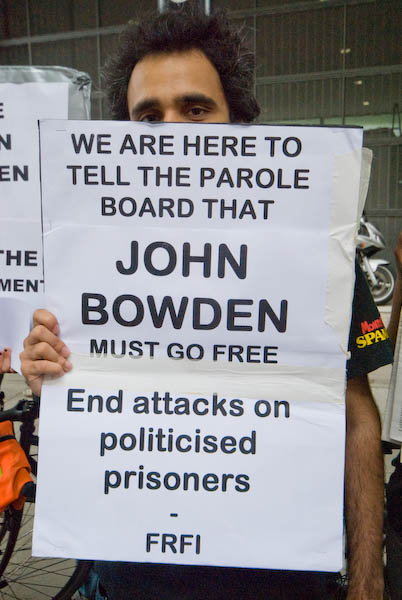
In an interview in Novara Media in 2020 he states “I committed and devoted my life not just to the personal struggle against brutality but to a wider struggle against the prison system generally, and spent almost 40 years trying to organise and mobilise prisoners.” The views he expresses on prison in this interview should be taken to heart by those to reforming our criminal justice system to create a system that works with offenders to rehabilitate rather than further damage them and make re-offending virtually inevitable.
In 2016 the International Workers of the World founded the IWW Incarcerated Workers Organising Committee and he became a member.
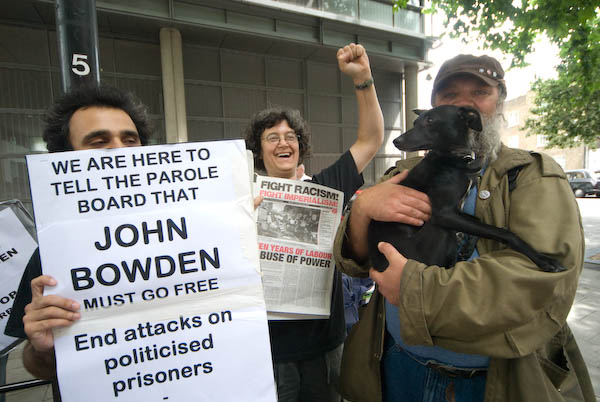
You can see and hear Bowden in a series of short videos made for the Prisoner Solidarity Network on YouTube, Tour of the British prison estate.
While the others convicted with him were released over 20 years ago, Bowden was only granted parole in 2020, and only after taking the Parole Board to Judicial Review following their fourth rejection of his release.
It had become clear that his continued imprisonment was not because of any danger to the public “but because I was labelled an ‘anti-authoritarian’ prisoner with links to anarchist and communist groups on the outside, specifically Anarchist Black Cross and the Revolutionary Communist Group.”
International Day of Solidarity – John Bowden
No More Deportations to the Congo – Parliament Square
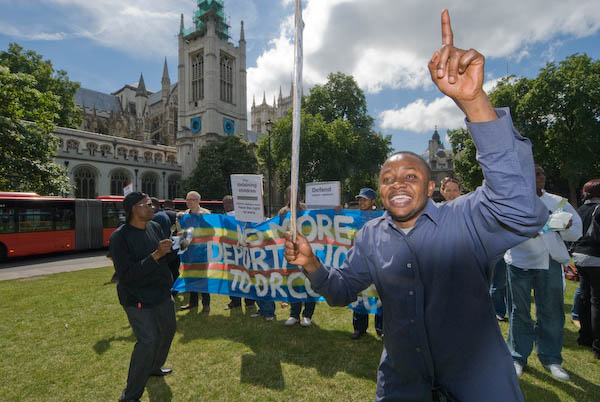
A group of UK residents from the Democratic Republic of Congo had come to demand an end to Britain’s racist laws and to end the harassment and detention of refugees and asylum seekers. They say all deportations to the DRC should stop as the country is unsafe.
There are just a few more pictures on My London Diary.
Waterloo Carnival – Lower Marsh, Waterloo
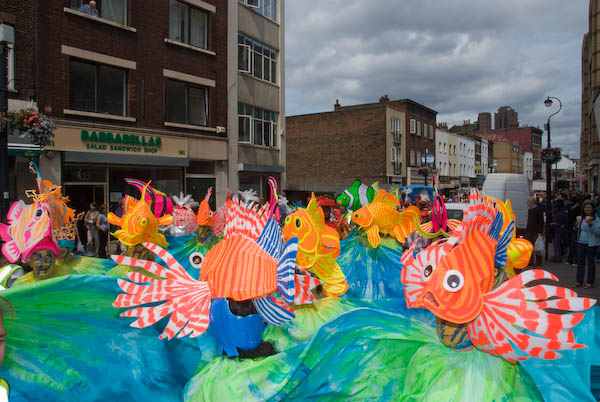
The first Waterloo Carnival took place in July 2002 as “a celebration of our community: our unity and diversity, history and future” and is backed by many locally based businesses and organisations including the Old Vic, Christian Aid and the local primary school where the procession formed up.
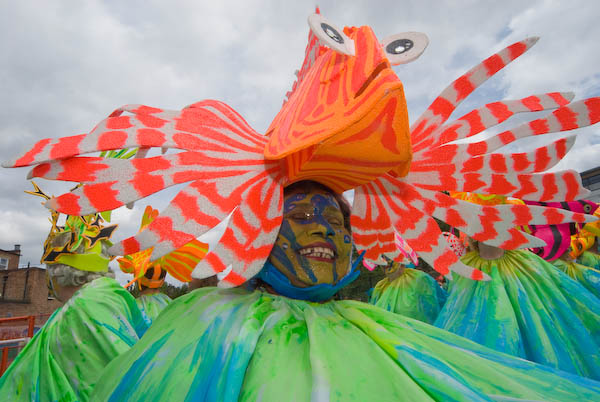




Many more pictures on My London Diary at Waterloo Carnival.
Flickr – Facebook – My London Diary – Hull Photos – Lea Valley – Paris
London’s Industrial Heritage – London Photos
All photographs on this page are copyright © Peter Marshall.
Contact me to buy prints or licence to reproduce.
